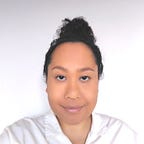We grow up being taught to know things. To be able to respond with the correct answer when the teacher calls our name in class. To “know more” became the thing we always wanted to attain. In fact I’m absolutely obsessed with it — this desire to know more. So much in fact that I’m paralyzed by it sometimes and I stop consuming information as some sort of unconscious and passive rebellion.
As a designer, I think that needing to know can work against us. In fact, not knowing has allowed me to make better decisions at times.
Let’s rewind two years. A few years ago, I was on a track to pursue a career that really wasn’t right for me. And then one day someone said to me that it was okay to not know what I wanted to do with my life. It was like blasphemy.
No one had ever said this to me before.
I had heard people suggest career paths to me or offer their personal anecdote about how they got started, but never had anyone said to me that it was okay to not know. I thought “How dare you tell me to add this to the long list of things I don’t already understand?” This idea of “not knowing” was disorienting and uncomfortable and yet ultimately altered my life entirely. This is what led me to the world of UX Design. This is why I am here, why I am excited to wake up in the morning and work in a field that I actually find fulfilling and inspiring. All because someone told me it was okay to not know.
After accepting this idea with some discomfort I started doing research. Now I had done research before many times on this topic, I had googled every string of words I could imagine that would present me with a fast and quick solution to my lack of career direction. This time was different though, this time my searches were not biased by questions like “how much money will I make,” or “what do my friends/family think I should do” or even “what am I good at.”
It simply started from: “What do I love?” So I typed into my search engine two words: Psychology and Design. And now I am sitting here as a UX Designer about to start her first role completely terrified, but absolutely invigorated.
I finally know what I want to do with my life, all because someone told me one day that it’s okay to not know.
I compare it to sitting in a theater with a prospective romantic partner to your right. No matter how smitten the guy walking past you is, he will be unlikely to sit beside you and that’s because someone else is already sitting there. Not knowing is what we, as designers, should be doing because how can we meet that intuitive and innovative idea if we keep sitting next to the stale commonplace ideas in a world that is constantly changing?
So instead, I believe that we have to leave that seat beside us open for innovation, for inspiration and for breaking out of the familiar into the unfamiliar.
As designers, not knowing is what saves us. It saves us from our bias and our loud assumptions. And then our ears get larger and we listen more clearly to the voices that matter. This is how we create something that is intuitive to our users needs and maybe even change the way people think about the world.
In everyday life it may seem ridiculous — to reject an idea without having a counter-argument. To say that I would rather be okay with not knowing than making an assertion here that I’m really not sure about. It sounds like something you’d be laughed out of the room for, but maybe we should take pride in being brave enough to admit we don’t know enough on certain topics. Just because something exists, just because there is a current system doesn’t mean it’s the right solution. It’s just the one that is in effect right now.
The point is sometimes we need to fight that urge to know and to be comfortable with not knowing until we find something that is reasonably convincing. Who knows, maybe not knowing could change your life one day like it did mine.
